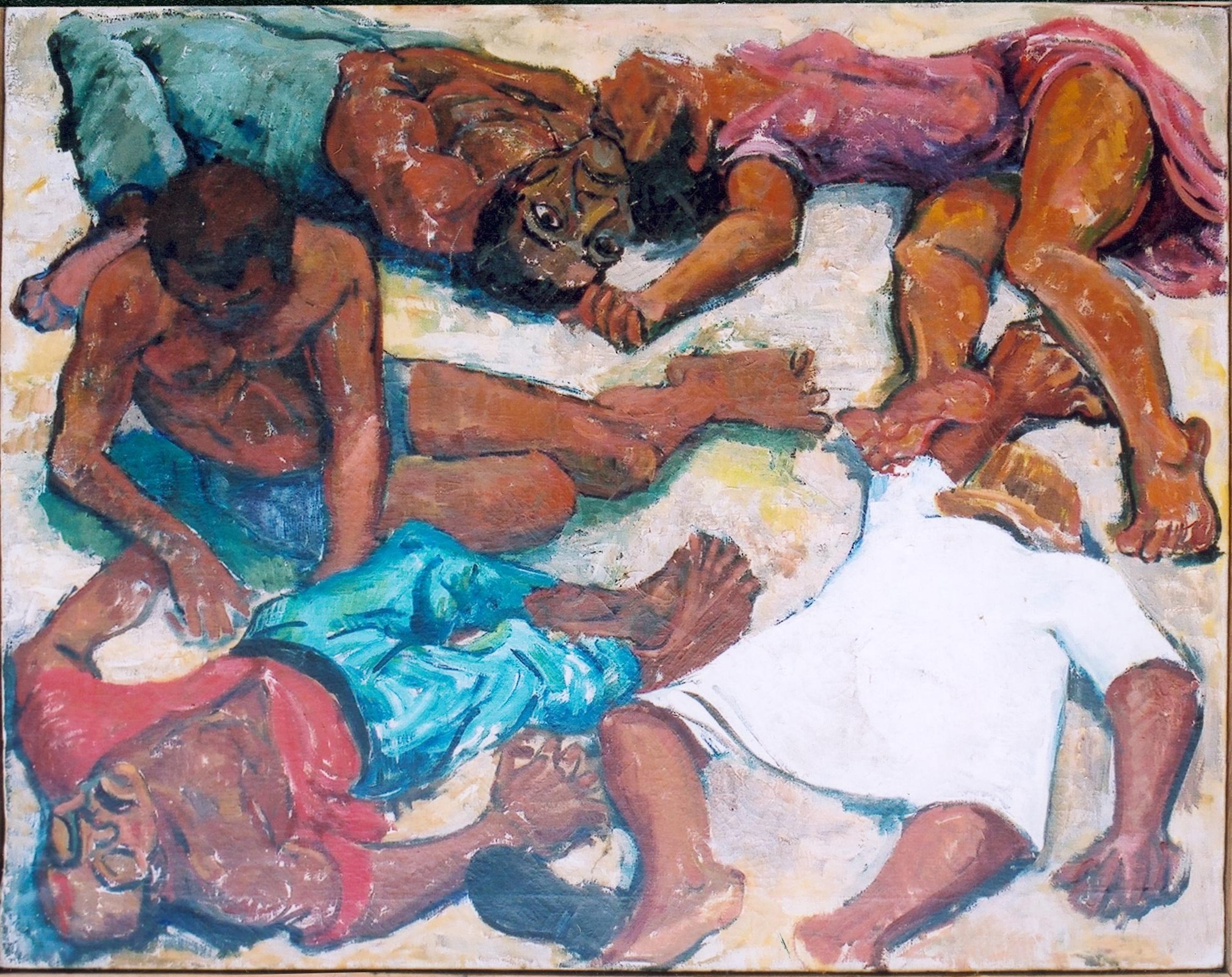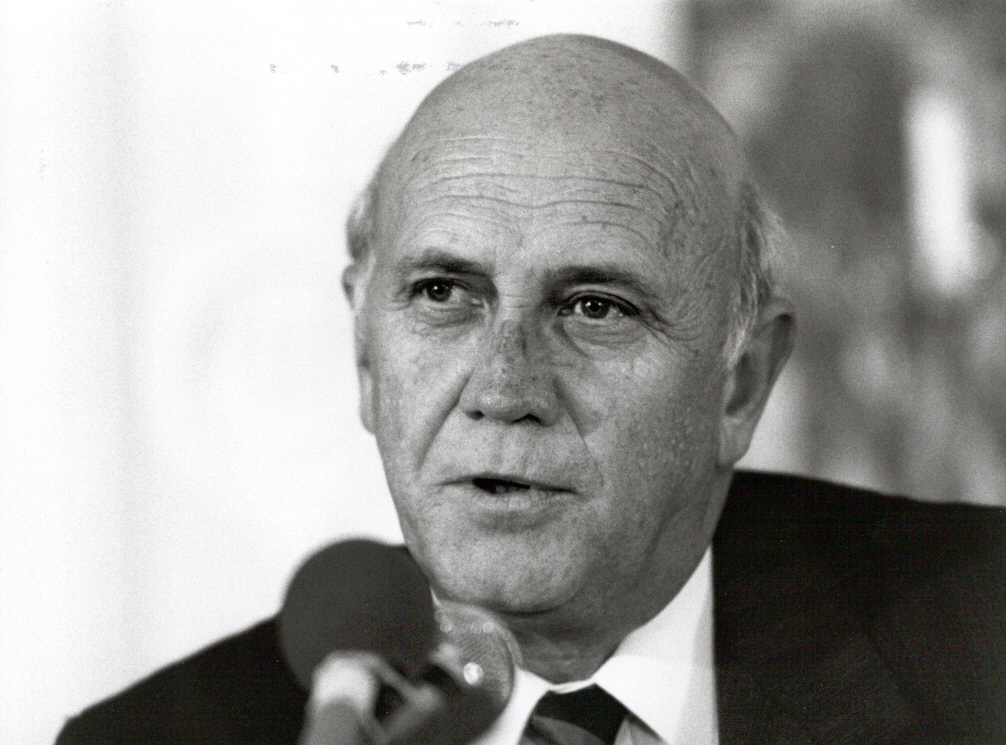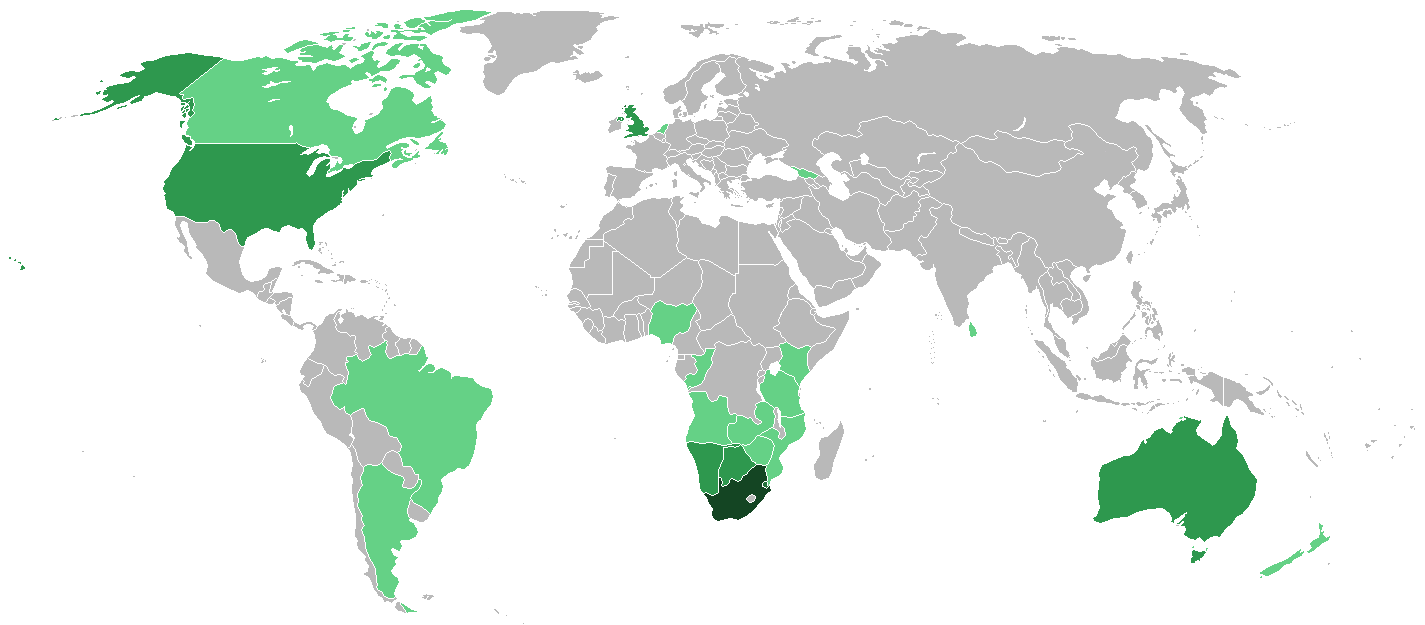|
Bophuthatswana Conflict (1994)
The 1994 Bophuthatswana crisis was a major political crisis which began after Lucas Mangope, the president of Bophuthatswana, a nominally independent South African bantustan created under ''apartheid'', attempted to crush widespread labour unrest and popular demonstrations demanding the incorporation of the territory into South Africa pending non-racial elections later that year. Violent protests immediately broke out following President Mangope's announcement on 7 March that Bophuthatswana would boycott the South African general elections. This was escalated by the arrival of right-wing Afrikaner militias seeking to preserve the Mangope government. The predominantly black Bophuthatswana Defence Force and police refused to cooperate with the white extremists and mutinied, then forced the Afrikaner militias to leave Bophuthatswana. The South African military entered Bophuthatswana and restored order on 12 March. The Bophuthatswana Crisis highlighted the deep unpopularity of the ... [...More Info...] [...Related Items...] OR: [Wikipedia] [Google] [Baidu] |
Internal Resistance To Apartheid
Several independent sectors of South African society opposed apartheid through various means, including social movements, passive resistance, and guerrilla warfare. Mass action against the ruling National Party (South Africa), National Party (NP) government, coupled with South Africa's growing international isolation and economic sanctions, were instrumental in leading to Negotiations to end apartheid in South Africa, negotiations to end apartheid, which began formally in 1990 and ended with South Africa's 1994 South African general election, first multiracial elections under a universal franchise in 1994. Apartheid was adopted as a formal South African government policy by the NP following their victory in the 1948 South African general election, 1948 general election. From the early 1950s, the African National Congress (ANC) initiated its Defiance Campaign of passive resistance. Subsequent civil disobedience protests targeted curfews, pass laws, and "petty apartheid" segregati ... [...More Info...] [...Related Items...] OR: [Wikipedia] [Google] [Baidu] |
Puppet State
A puppet state, puppet régime, puppet government or dummy government is a State (polity), state that is ''de jure'' independent but ''de facto'' completely dependent upon an outside Power (international relations), power and subject to its orders.Compare: Puppet states have nominal Sovereign state, sovereignty, except that a foreign power effectively exercises control through economic or military support. By leaving a local government in existence the outside power evades all responsibility, while at the same time successfully paralysing the local government they tolerate. Puppet states differ from Alliance, allies, who choose their actions of their own initiative or in accordance with Treaty, treaties they have voluntarily entered. Puppet states are forced into Rubber stamp (politics), legally endorsing actions already taken by a foreign power. Characteristics Puppet states are "endowed with the outward symbols of authority", such as a name, National flag, flag, anthem, cons ... [...More Info...] [...Related Items...] OR: [Wikipedia] [Google] [Baidu] |
South African Army
The South African Army is the principal Army, land warfare force of South Africa, a part of the South African National Defence Force (SANDF), along with the South African Air Force, South African Navy and South African Military Health Service. The Army is commanded by the Chief of the Army, who is subordinate to the Chief of the SANDF. Formed in 1912, as the Union Defence Force (South Africa), Union Defence Force in the Union of South Africa, through the amalgamation of the South African colonial forces following the unification of South Africa. It evolved within the tradition of frontier warfare fought by Boer Commando (militia) forces, reinforced by the Afrikaners' historical distrust of large standing armies. Following the ascension to power of the National Party (South Africa), National Party, the Army's long-standing Commonwealth of Nations, Commonwealth ties were cut. The South African Army was fundamentally changed by the end of Apartheid and its preceding upheavals, ... [...More Info...] [...Related Items...] OR: [Wikipedia] [Google] [Baidu] |
North-West University
The North-West University (NWU) is a public research university located on three campuses in Potchefstroom, Mahikeng and Vanderbijlpark in South Africa. The university came into existence through the merger in 2004 of the Potchefstroom University for Christian Higher Education, a large, historical university dating back to 1869, which also had a branch in Vanderbijlpark, and the University of North-West (formerly the University of Bophuthatswana). With its merged status, the North-West University became one of the largest universities in South Africa with the third largest student population (full-time and distance education) in the country. NWU ranks among top universities locally, in Africa and globally. Campuses *Mahikeng Campus *Potchefstroom Campus (main campus) *Vanderbijlpark Campus Student profile Alumni * Dirk Hermann, trade unionist * Katlego Maboe, television presenter * Gerhard Mostert, rugby player * Demi-Leigh Nel-Peters, Miss Universe 2017 * Mamokgeth ... [...More Info...] [...Related Items...] OR: [Wikipedia] [Google] [Baidu] |
Electoral Commission Of South Africa
The Electoral Commission of South Africa (often referred to as the Independent Electoral Commission or IEC) is South Africa's election management body, an independent organisation established under chapter nine of the Constitution. It conducts elections to the National Assembly, provincial legislatures and municipal councils. An interim Electoral Commission was created in 1993 to manage the first non-racial election of the national and provincial legislatures, which was held on 26 to 29 April 1994. The permanent Electoral Commission was established on 17 October 1996. The Commission has been chaired by Johann Kriegler (1997–1999), Brigalia Bam (1999–2011), Pansy Tlakula (2011–2014), Glen Mashinini (2015–2022), and Mosotho Moepya (2022–present). History Interim Independent Electoral Commission Under the apartheid government, elections in South Africa were administered by the Department of Home Affairs, under the Electoral Act of 1979. Election management ... [...More Info...] [...Related Items...] OR: [Wikipedia] [Google] [Baidu] |
Freedom Of Assembly
Freedom of assembly, sometimes used interchangeably with the freedom of association, is the individual right or ability of individuals to peaceably assemble and collectively express, promote, pursue, and defend their ideas. The right to freedom of assembly is recognized as a human right, a Political freedom, political right and a Civil liberties, civil liberty. The terms ''freedom of assembly'' and ''freedom of association'' may be used to distinguish between the freedom to assemble in public places and the freedom to join an association. Freedom of assembly is often used in the context of the right to protest, while freedom of association is used in the context of labor rights. The Constitution of the United States is interpreted to mean both the freedom to assemble and the freedom to join an association. Human rights instruments Freedom of assembly is included in, among others, the following human rights instruments: * Universal Declaration of Human Rights – Article 20 * ... [...More Info...] [...Related Items...] OR: [Wikipedia] [Google] [Baidu] |
Negotiations To End Apartheid In South Africa
The History of South Africa in the apartheid era, apartheid system in South Africa was ended through a series of bilateral and multi-party negotiations between 1990 and 1993. The negotiations culminated in the passage of a new Interim Constitution (South Africa), interim Constitution in 1993, a precursor to the Constitution of South Africa, Constitution of 1996; and in South Africa's first non-racial 1994 South African general election, elections in 1994, won by the African National Congress (ANC) liberation movement. Although there had been gestures towards negotiations in the 1970s and 1980s, the process accelerated in 1990, when the government of F. W. de Klerk took a number of unilateral steps towards reform, including releasing Nelson Mandela from prison and unbanning the ANC and other political organisations. In 1990–91, bilateral "talks about talks" between the ANC and the government established the pre-conditions for substantive negotiations, codified in the Groote Sc ... [...More Info...] [...Related Items...] OR: [Wikipedia] [Google] [Baidu] |
Nelson Mandela
Nelson Rolihlahla Mandela ( , ; born Rolihlahla Mandela; 18 July 1918 – 5 December 2013) was a South African Internal resistance to apartheid, anti-apartheid activist and politician who served as the first president of South Africa from 1994 to 1999. He was the country's first black head of state and the first elected in a Universal suffrage, fully representative democratic election. Presidency of Nelson Mandela, His government focused on dismantling the legacy of apartheid by fostering racial Conflict resolution, reconciliation. Ideologically an African nationalist and African socialism, socialist, he served as the president of the African National Congress (ANC) party from 1991 to 1997. A Xhosa people, Xhosa, Mandela was born into the Thembu people, Thembu royal family in Mvezo, South Africa. He studied law at the University of Fort Hare and the University of Witwatersrand before working as a lawyer in Johannesburg. There he became involved in anti-colonial and Afr ... [...More Info...] [...Related Items...] OR: [Wikipedia] [Google] [Baidu] |
Kgosi
A (; ) is the title for a hereditary leader of a Batswana and South Africa peoples tribe. Usage The word "kgosi" is a Setswana term for "king" or "chief". Various affixes can be added to the word to change its meaning: adding the prefix ''di-'' creates the plural form '' dikgosi''; the feminine suffix '' -gadi'' makes the word '' kgosigadi''; and the adjectival suffix '' -kgolo'', meaning "large", creates '' kgosikgolo'', the word for "supreme leader". It is a title often given to aristocrats in Botswana and surrounding countries where there are Tswana speaking people. The office of tribal leadership is called the ''bogosi'' while the person who assumes the office is the ''kgosi''. Duties The Bogosi Act of 2008 defines the powers of dikgosi. According to the Bogosi Act, the kgosi of a tribe has several duties: to manage the tribe, to organize kgotla meetings, and to follow the rules and advice of the national government and the members of the tribe. The dikgosi of the eigh ... [...More Info...] [...Related Items...] OR: [Wikipedia] [Google] [Baidu] |
National Party (South Africa)
The National Party (, NP), also known as the Nationalist Party, was a political party in South Africa from 1914 to 1997, which was responsible for the implementation of Apartheid, apartheid rule. The party was an Afrikaner nationalism, Afrikaner ethnic nationalist party, which initially promoted the interests of Afrikaners but later became a stalwart promoter and enactor of white supremacy, for which it is best known. It first became the governing party of the country in 1924. It merged with its rival, the South African Party (SAP), during the Great Depression, 1929-1939 Great Depression, and a splinter faction, the Herenigde Nasionale Party, Re-United National Party became the official opposition during World War II and won power in 1948. With the National Party governing South Africa from 1948 South African general election, 4 June 1948 until 1994 South African general election, 9 May 1994, the country for the bulk of this time was only a ''de jure'' or partial democracy, as ... [...More Info...] [...Related Items...] OR: [Wikipedia] [Google] [Baidu] |
Minority Rule
In political science, minoritarianism (or minorityism) is a neologism for a political structure or process in which a minority group of a population has a certain degree of primacy in that population's decision making, with legislative power or judicial power being held or controlled by a minority group rather than a majority that is representative of the population. Concept in depth Minoritarianism is most often applied disparagingly to processes in which a minority is able to block legislative changes in the presence of supermajority threshold requirements. For example, if a two-thirds majority vote in favor is required to enact a new law, an opposing minority of greater than one-third is said to have "minoritarian" powers. Even in the case where minority control is nominally limited to blocking the majority with veto power (whether as a result of a supermajority requirement or consensus decision-making), this may result in the situation where the minority retains effective ... [...More Info...] [...Related Items...] OR: [Wikipedia] [Google] [Baidu] |
Afrikaner
Afrikaners () are a Southern African ethnic group descended from predominantly Dutch settlers who first arrived at the Cape of Good Hope in 1652.Entry: Cape Colony. ''Encyclopædia Britannica Volume 4 Part 2: Brain to Casting''. Encyclopædia Britannica, Inc. 1933. James Louis Garvin, editor. Until 1994, they dominated South Africa's politics as well as the country's commercial agricultural sector. Afrikaans, a language which evolved from the Dutch dialect of South Holland, is the mother tongue of Afrikaners and most Cape Coloureds. According to the South African National Census of 2022, 10.6% of South Africans claimed to speak Afrikaans as a first language at home, making it the country's third-largest home language after Zulu and Xhosa. The arrival of Portuguese explorer Vasco da Gama at Calicut, India, in 1498 opened a gateway of free access to Asia from Western Europe around the Cape of Good Hope. This access necessitated the founding and safeguarding of tra ... [...More Info...] [...Related Items...] OR: [Wikipedia] [Google] [Baidu] |








